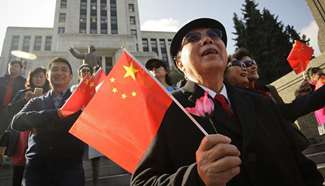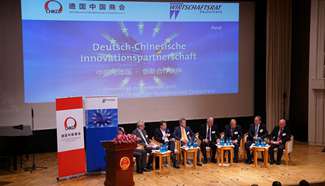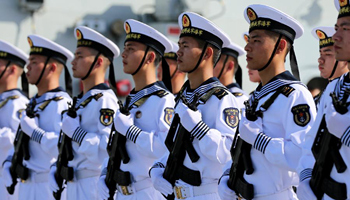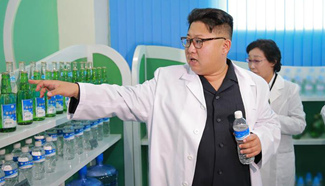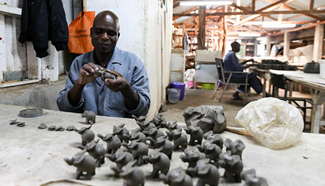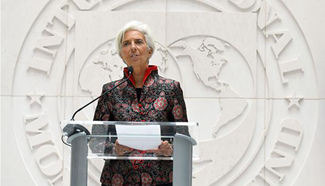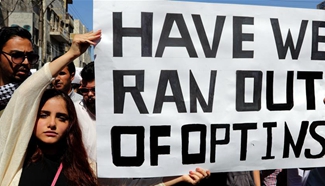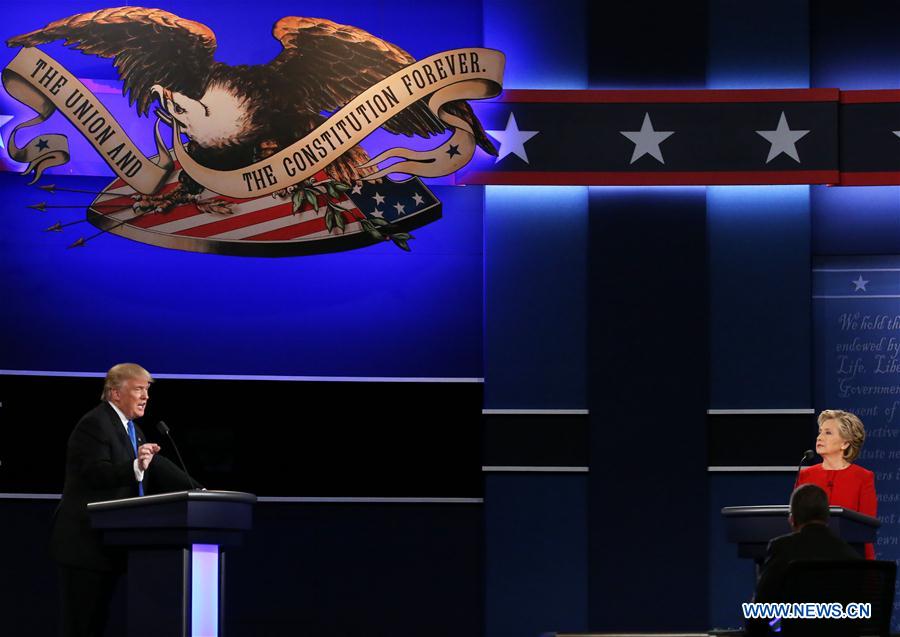
Democrat Hillary Clinton (R) and Republican Donald Trump attend their first presidential debate in Hempstead of New York, the United States, Sept. 26, 2016. Hillary Clinton and Donald Trump on Monday held their first presidential debate in Hempstead. (Xinhua/Qin Lang)
WASHINGTON, Sept. 30 (Xinhua) -- A majority of Americans now say the United States needs a third major party, according to a new poll issued Friday.
Currently, 57 percent of Americans say the two parties are not doing an adequate job of representing the American people, the Gallup's annual Governance poll shows, noting in 2008 and 2012, less than half of Americans favored a third party.
Among them, 73 percent of independent voters, 51 percent of Republicans and 43 percent of Democrats favor the formation of a third party, the poll finds.
Republicans' preference for a third party today ranks among the highest Gallup has found for a partisan group, along with a 52 percent reading among Republicans in 2013 and 50 percent for Democrats in 2006, according to the poll.
In 2008 and 2012, third-party presidential candidates received less than 2 percent of the popular vote for president. This year, third-party candidates are getting about 10 percent of the vote combined in presidential preference polls, said a Gallup poll analysis report.
The poll results come at a time when Americans' views of the Republican and Democratic parties are near historical lows, and when Americans hold highly negative opinions of both major-party presidential nominees.
In 2008 and 2012, Americans' favorable ratings of the parties were slightly more positive than today, but their favorable ratings of the presidential candidates were far better.
When Gallup first asked Americans about the need for a third party in 2003, a majority said the parties were doing an adequate job, leaving 40 percent advocating for a third party. By 2006, Americans were evenly divided, but they have shown a clearer preference for a third party since then, apart from 2008 and 2012, said Jeffrey Jones, an analyst with the Gallup.
The political environment is different this year, with Democratic nominee Hillary Clinton's favorable ratings struggling to break 40 percent, while her Republican rival Donald Trump's have been stuck even lower at around 33 percent, said Jones.
It's not likely for any third-party candidate to win the election, but they would be likely to play "spoiler" by taking away enough votes from one major-party candidate to allow the other to prevail.
Americans' appetite for a third party may not be as great as they say it is, since Americans' unfamiliarity with the third-party candidates and possibly Americans' reluctance to cast their vote for a candidate with little chance of winning, said Jones.
Results for this Gallup poll are based on telephone interviews conducted between Sept. 7 and 11, with a random sample of 1,020 adults, aged 18 and older across the United States. The margin of sampling error is 4 percentage points at the 95 percent confidence level. All reported margins of sampling error include computed design effects for weighting.
Related:
News Analysis: First Trump-Clinton debate has yet to convince undecided voters
NEW YORK, Sept. 27 (Xinhua) -- U.S. presidential candidates Donald Trump and Hillary Clinton traded barbs in unusually personal terms during their first presidential debate, with Clinton blasting Trump for dodging taxes and being sexist and racist, and Trump accusing Clinton of lacking stamina for the presidency.
Their performance in the relentlessly derogatory showdown Monday night may help appease some voter concerns about their respective physical and mental fitness for presidency, but is far from building enough trust among undecided voters to chart a path to win the decisive 270 electoral votes for the Oval Office, U.S. experts said. Full story




